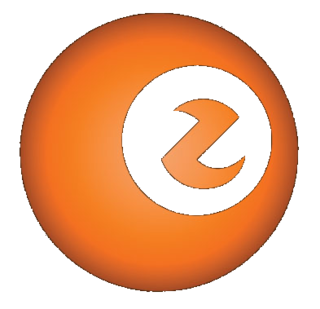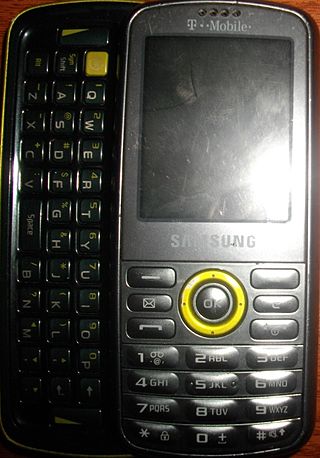Related Research Articles

The American Society of Composers, Authors, and Publishers (ASCAP) is an American not-for-profit performance-rights organization (PRO) that collectively licenses the public performance rights of its members' musical works to venues, broadcasters, and digital streaming services.
A ringtone is the sound made by a telephone to indicate an incoming telephone call. Originally referring to the sound of electromechanical striking of bells or gongs, the term refers to any sound by any device alerting of an incoming call.

In the United States, the Recording Industry Association of America (RIAA) award certification based on the number of albums and singles sold through retail and other ancillary markets. Other countries have similar awards. Certification is not automatic; for an award to be made, the record label must first request certification. The audit is conducted against net shipments after returns, which includes albums sold directly to retailers and one-stops, direct-to-consumer sales and other outlets.
Jamba is a German company that created and marketed ringtones for mobile phones. It operated under the name Jamster in China, Armenia, Georgia, Saudi Arabia, Iran, Oman, France, Kuwait, Turkey, Switzerland, Kazakhstan, Austria, Brazil, Israel, the United Arab Emirates, the United Kingdom, the United States, Sweden, Iraq, Poland, Malaysia, and Indonesia.
Mobile content is any type of web hypertext and information content and electronic media which is viewed or used on mobile phones, like text, sound, ringtones, graphics, flash, discount offers, mobile games, movies, and GPS navigation. As mobile phone use has grown since the mid-1990s, the usage and significance of the mobile devices in everyday technological life has grown accordingly. Owners of mobile phones can now use their devices to make photo snapshots for upload, twits, mobile calendar appointments, and mostly send and receive text messages, listen to music, watch videos, take mobile pictures and make videos, use websites to redeem coupons for purchases, view and edit office documents, get driving instructions on mobile maps and so on. The use of mobile content in various areas has grown accordingly.
Internet Content Rating Association (ICRA) was an international non-profit organization with offices in the United States and the United Kingdom. In October 2010, the ICRA rating system, and the organization, was discontinued.
Ringing tone is a signaling tone in telecommunication that is heard by the originator of a telephone call while the destination terminal is alerting the receiving party. The tone is typically a repeated cadence similar to a traditional power ringing signal (ringtone), but is usually not played synchronously. Various telecommunication groups, such as the Bell System and the General Post Office (GPO) developed standards, in part taken over by the European Telecommunications Standards Institute (ETSI) and other standards bodies. With modern cell phone and smartphone technology ringing tone can be customized and even used for advertising.
Vernon L Irvin currently works as EVP and chief revenue officer at Everbridge one of the fastest growing publicly traded Saas companies in the world. Irvin was formerly President of the Government, Education, Medium & Small Business business unit within CenturyLink. Prior to CenturyLink, he served in several executive positions at Time Warner Cable, CEO and president at Virtual World Computing and was executive vice president and chief marketing officer for XM Satellite Radio.
Wireless Application Protocol (WAP) is a technical standard for accessing information over a mobile wireless network. A WAP browser is a web browser for mobile devices such as mobile phones that use the protocol. Introduced in 1999, WAP achieved some popularity in the early 2000s, but by the 2010s it had been largely superseded by more modern standards. Almost all modern handset internet browsers now fully support HTML, so they do not need to use WAP markup for web page compatibility, and therefore, most are no longer able to render and display pages written in WML, WAP's markup language.
Thumbplay is a U.S.-based subscription service that allows users to download music, video and games to their cell phones. Users can manage, store and share their mobile content online and on their wireless devices.
The Virgin Mobile Slider Sonic (KX5B), is a Mobile phone made by Kyocera, and the successor to the Virgin Mobile Slider. The Slider Sonic is a music-oriented phone aimed at teens.
A General Content Descriptor (GCD) is a file which describes downloads like ringtones and pictures to wireless devices. GCD's are plain text files. They are required by many wireless carriers to install applications on devices. The name of the file will end with a ".gcd" extension.
Playphone is a mobile gaming platform founded in 2003 headquartered in San Jose, California that provides direct-to-consumer mobile content distribution. It is funded by Menlo Ventures, Cardinal Venture Capital, and Coral Capital Management, and is a subsidiary of GungHo Online Entertainment.
Mobile entertainment comprises a range of activities associated with mobile electronics. The definition is both somewhat subjective and in continual development, but can include purely leisure activities, communications, and activities which could also be defined as commerce (shopping).

Zeebo Inc. was an American consumer electronics company and creator of the Zeebo entertainment and education system. Designed for "emerging markets" in countries such as Brazil, Mexico, India and China, the Zeebo system runs videogames and other interactive content delivered via wireless 3G digital distribution. This approach is intended to thwart piracy and reduce the cost of content. The system also enables wireless Internet access for web browsing, email and social networking. The Zeebo was sold throughout Brazil and Mexico, and the company has discussed the possibility of future product introductions elsewhere in Latin America, in India, China and Russia.

The Digital Millennium Copyright Act (DMCA) is a 1998 United States copyright law that implements two 1996 treaties of the World Intellectual Property Organization (WIPO). It criminalizes production and dissemination of technology, devices, or services intended to circumvent measures that control access to copyrighted works. It also criminalizes the act of circumventing an access control, whether or not there is actual infringement of copyright itself. In addition, the DMCA heightens the penalties for copyright infringement on the Internet. Passed on October 12, 1998, by a unanimous vote in the United States Senate and signed into law by President Bill Clinton on October 28, 1998, the DMCA amended Title 17 of the United States Code to extend the reach of copyright, while limiting the liability of the providers of online services for copyright infringement by their users.
WAP billing is a mechanism for consumers to buy content from Wireless Application Protocol (WAP) sites that is charged directly to their mobile phone bill. It is an alternative payment mechanism to debit or credit cards and premium SMS for billing. Using WAP billing, consumers can buy mobile content without registering for a service or entering a username or password. The user clicks on a link and agrees to make a purchase, after which they can download content.

The Samsung Gravity (SGH-T459) is a slider feature phone with a full QWERTY keypad. It was first released for T-Mobile USA. The Samsung SGH-T349 is a mobile phone available through T-Mobile and announced on May 20, 2009 that has many similarities to the original Gravity.
An app store, also called an app marketplace or app catalog, is a type of digital distribution platform for computer software called applications, often in a mobile context. Apps provide a specific set of functions which, by definition, do not include the running of the computer itself. Complex software designed for use on a personal computer, for example, may have a related app designed for use on a mobile device. Today apps are normally designed to run on a specific operating system—such as the contemporary iOS, macOS, Windows, Linux or Android—but in the past mobile carriers had their own portals for apps and related media content.

Club Nokia was a mobile internet digital distribution portal, similar to an App Store, operated by Nokia to provide special offers, paid-for ringtones, picture messages and game content directly to members. Following resistance from its mobile operator customers, Nokia partially closed the service and the brand became solely a consumer service and loyalty portal.
References
External Links: AT&T Wireless Offers Latin Mobile Content